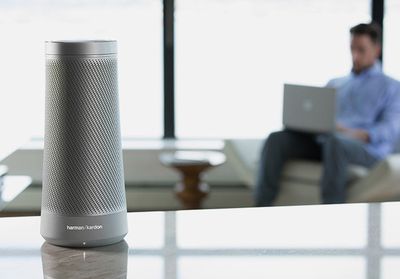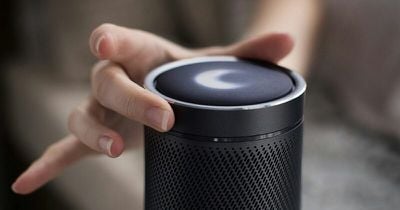Harman Kardon has teased its upcoming Cortana-integrated connected smart speaker with a product page that revealed a little more about the device's design and features.
The web page for the Invoke speaker appears to have been removed since it was spotted by Thurrott.com this morning, but it offered a better glimpse at the device's sloping cylindrical design, which appears to fall somewhere in between the Amazon Echo and Google Home.

The light ring at the top of the speaker will be familiar to users of Microsoft's Cortana voice-activated assistant, while pictures suggest touch-based controls could involve rotating the upper ridge. Elsewhere, the mesh grille indicates the device's expected ability to project high-quality audio over 360 degrees.
Perhaps the most notable feature of the Invoke speaker is voice calling, which the Echo and Google Home do not currently support, although the Harman Kardon device does appear to rely on Skype for this capability.

No pricing was given on the product page, but the Invoke speaker is being marketed as a premium alternative to its rivals, so it's unlikely to be cheap. The device is expected to launch this fall.
Apple is rumored to be close to launching its own voice-driven smart speaker with Siri functionality and AirPlay support. The device is said to have a Mac Pro-like concave top with built-in controls and could possibly run a modified version of iOS. The product could be unveiled as early as next month at WWDC. Amazon is also said to be working on a next-generation Echo with a built-in screen and phone calling features.
In related news today, research firm eMarketer revealed the results of a study that shows Amazon is dominating the nascent market for voice-controlled speakers. The company's Echo range of devices will claim a 70.6 percent share of the U.S. market this year, the study found, while Google Home will come a distant second with 23.8 percent share, with the rest of the market shared between less successful offerings from other tech companies.
The number of active U.S. users will more than double for the devices this year, to 35.6 million, eMarketer said.
























Top Rated Comments